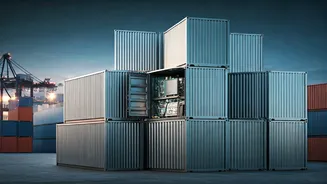Cyberattack’s Impact Unveiled
The impact of a cyberattack on Jaguar Land Rover (JLR) played a substantial role in the decline of Tata Motors' shares during the second quarter. The attack disrupted
JLR's operational capabilities, leading to a decrease in its sales volumes. Cyberattacks have the potential to damage businesses through various avenues, including data breaches and the disruption of production and supply chains. When such incidents occur, they immediately affect the firm's output. For instance, a cyberattack could suspend manufacturing processes or prevent the shipping of finished items, directly lowering sales numbers. Furthermore, the incident probably created extra costs for damage control, raising questions about the firm's financial stability, which led investors to be cautious about the long-term prospects. The implications of such an event resonate throughout the organization, influencing confidence and strategic decisions.
Legacy Models Wind Down
The decision to phase out older Jaguar models further influenced the sales volume of JLR. The strategy to discontinue these legacy models reflected a broader shift toward new models and electrification. The wind-down usually involves the ceasing of production, with spare parts and support transitioning over time. Because these models were established products that had existing consumer markets, the discontinuation meant a short-term reduction in sales. Moreover, older cars often have higher maintenance and production expenses than the newest models. The removal of these less profitable cars is usually considered a long-term business strategy to boost profitability, though there are always initial setbacks. The goal is to create a streamlined model lineup that is updated with customer tastes and advanced technologies, especially in light of the current focus on sustainability and technological innovation.
US Tariffs' Economic Effects
US tariffs exerted external economic pressures, indirectly affecting JLR's sales. These tariffs, applied to imported goods, increased the overall cost of doing business. This cost hike had different outcomes. The increased expense of raw materials and vehicle components directly raises production costs. Furthermore, tariffs can potentially restrict market access, because they could increase the selling price of automobiles in the US. The economic policy's results extend past immediate financial repercussions. For instance, tariffs may lead to shifts in global supply chains, and this may prompt automakers to revisit where they manufacture their products. The changes in production and distribution could also affect profitability and performance. By examining the intricacies of tariffs, manufacturers can better understand the challenges of international trade and the importance of long-term strategic planning in unstable economic scenarios.





















